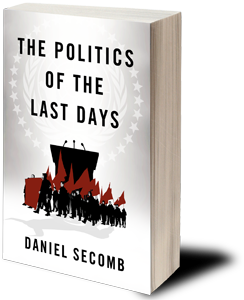Mary Doogan sees herself like the driver of the getaway car in an armed robbery.
‘Would the police say that because he wasn’t actually in the bank, brandishing the gun, he isn’t guilty? Of course, they wouldn’t.’
This retired midwife, demurely dressed in a coral cardigan and smart court shoes, is the least likely of criminals, and it is sad that she carries even a hint of guilt about her ‘crime’.
After all, it was committed only in her own eyes (and God’s, she would say) and was a matter of conscience.
In the course of her duties in an NHS hospital, Mary, a devout Catholic, supervised colleagues as they participated in abortions. Although never hands-on herself, she admits she always felt implicated.
‘It’s why I later took the stance I did,’ she says, referring to the court case that ultimately cost her job as a labour ward co-ordinator at the Southern General Hospital in Glasgow.

Mary Doogan (pictured), a devout Catholic, had been a midwife for 30 years. But she was forced to quit her job at a NHS hospital in Glasgow for refusing to oversee abortions
‘I don’t believe any midwife should be put in that position. It goes against why I went into midwifery in the first place.
‘My role was to bring life into the world. My patients were the woman and the baby. I have always felt a professional duty to both.
‘The thing that I could never get my head around was how you had to watch the words you used,’ she adds.
‘You’d never say ‘baby’ while with a woman who had chosen a termination. You’d talk about her ‘pregnancy’ or her ‘labour’.
‘With the next patient, though, who was in for a check-up, it would be all about the baby. It drove some of the girls mad, even the ones who had no objections to abortion.’
Pointedly, Mary doesn’t use the word ‘foetus’ once during our interview.
It was in 2014, after a gruelling six-year battle that had taken Mary, now 63, and a fellow midwife, Connie Wood, all the way to the Supreme Court in London that they finally lost their case.
The judgment effectively decreed that while midwives can opt out of ‘frontline’ abortion work, those in senior positions — like Mary and Connie — still have to supervise.
The judgment effectively decreed that while midwives can opt out of ‘frontline’ abortion work, those in senior positions — like Mary (pictured at home) and Connie — still have to supervise
The ruling overturned an earlier decision, in an Edinburgh court, which supported the women’s claim that they were ‘conscientious objectors’.
As the law now stood, they could be disciplined for refusing to take part. So, having delivered some 5,000 babies over three decades in a job she adored, Mary felt she had no choice but to take early retirement.
Now she is telling her story because the issue is back in the political frame, with campaigners pushing for a change in the law to protect health professionals who, as a matter of conscience, do not want to be involved in abortions.
Given the power of the pro-choice lobby, she and other supporters of the bill — including Lord Alton and Lord Mackay, the former Lord Chancellor — fear that it has a slim chance of success unless public support can be galvanised.
‘It’s not only about midwives,’ says Mary of her fight. ‘The issue of conscientious objection in the NHS will become even more important with things like end-of-life care. We need to tackle it now.’
That Mary is a woman who lives by her beliefs is clear from the moment you enter her neat home on a quiet cul-de-sac in Glasgow.
She’s at pains to point out that her anti-abortion stance isn’t a Catholic quirk, though.
‘What about the Jewish people who don’t agree with it? What about atheists? It is not about religion. It’s about conscience.’
Warm, funny and worldly, Mary started her career delivering babies, often in slum conditions, all over Glasgow.

Now she is telling her story because the issue is back in the political frame, with campaigners pushing for a change in the law to protect health professionals who, as a matter of conscience, do not want to be involved in abortions
In the Eighties she worked for five years in a hospital in Saudi Arabia, and she has volunteered with the nuns of Mother Teresa’s order in India.
She has never married, although had life gone in a different direction, she would have liked a family of her own.
‘People have said to me ‘you should have been a nun, Mary’ but I’ve had boyfriends. It just never happened that I found someone I wanted to spend the rest of my life with. But you won’t find a bigger romantic than me. Mills & Boon. I love all that.’
She never wanted to be anything other than a midwife: ‘It’s a vocation, not a job,’ she says firmly.
Her efforts to distance herself professionally from abortions throughout her career — supervising staff when she had to but never taking an active role — had largely been successful and was accepted by colleagues and managers.
‘Other staff would volunteer to oversee them for me. They respected my feelings.
Then, in 2008, a restructuring in the hospital led to more abortions being carried out in the labour ward (previously they had been split between the gynaecology ward and the labour ward, depending on the stage of pregnancy), and Mary asked her managers for clarification on her position legally.

Mary Doogan lost a six-year legal battle after it ended up in London’s Supreme Court (pictured)
She had always understood that she was protected by a ‘conscience clause’ in the Abortion Act of 1967 which gave her the right not to be involved in a termination at any level.
She wanted to be sure, she told managers, and to formalise her arrangement in everyone’s interest.
‘It was becoming more difficult,’ she says. ‘The squeeze on resources meant fewer staff, so more pressure.
When the buzzer goes, you don’t know what is coming in. At one point I transferred to a Parentcraft position (teaching new mothers how to care for their babies) to try to avoid the termination issue.
‘On the second day I was asked to help out in theatre on a gynaecology ward.
‘The last three procedures on the list were terminations.
‘I just went out of the room — they only had to have me on hand, I wasn’t directly required — but that’s an impossible situation to be in.’
It was a growing cause of anxiety for her.
‘Even in a supervisory role, ultimately that patient is your responsibility. And if there are more inexperienced staff — as there are these days — then you may be required to step in.
‘I would never leave a woman unattended if she needed help. But I don’t think I should have been put in that position, though, and I was.’
At first, her managers seemed a bit baffled by her request, then the lawyers got involved.

Despite the ruling in favour of NHS Greater Glasgow and Clyde Health Authority, Mary stands by her decision, despite developing stress-related illnesses since leaving her job
‘When the managers came back and said that we had to supervise, no exemptions, I was floored — absolutely stunned,’ Mary says.
She says she was warned that she would face disciplinary action if she didn’t comply and participate in abortions when needed.
More lawyers were consulted, culminating in the Edinburgh court case where three judges found in Mary and her colleague Connie Wood’s favour.
When the decision was overturned in the Supreme Court two years later, both women were devastated.
‘I think I was numb’, says Mary. ‘I so believed we had the law on our side. When I heard the ruling, I couldn’t speak at all. I was so devastated and drained I came home and took to my bed.’
(The NHS Greater Glasgow and Clyde Health Authority yesterday said it adheres to The Nursing And Midwifery Council’s code on professional standards, and that GMC and RCOG recommendations are also respected.)
For Mary there was also the realisation her career was over.
‘I had no choice. I couldn’t go back to work in that environment, knowing I would have to do things that conflicted with my conscience.’
In fact, she hadn’t worked since 2010 because of the acute stress brought on by the legal wrangles.
She developed a debilitating condition called angioedema, which causes hives and a painful swelling of the skin.
‘It’s stress related. It makes everything swell up. My throat felt as if it was closed tight. I was on steroids. So painful. It was dreadful.’
Mary has now carved a new life in voluntary work. She counsels women who have had abortions they regret, while neighbours know they can always call on her for help with their babies.
She continues to take an interest in her profession but finds herself at odds with its hierarchy.
In 2016, Professor Cathy Warwick, then chief executive of the Royal College of Midwives, declared that abortion should be ‘part’ of the job of the modern midwife.
The ‘rights and wrongs’ of abortion should not be a consideration, Professor Warwick said, and backed a bid to axe any time limit on them.
‘Shameful,’ says Mary. ‘It goes against everything we stand for.’
She is keen to stress that ‘the women I cared for would never ever have known my views on abortion.
‘I would never have judged them on their own choices either. I’ve got people close to me who went down that road and I’d go out of my way to support them — the person, not the action,’ she says. Was it worth the sacrifice, I wonder?
‘Yes. I still believe I did the right thing. And the fight isn’t over yet. I don’t think any midwife should be forced into the position where they have to choose between their conscience and their career.’
What a tragedy it is that this compassionate and experienced woman’s determination to uphold her principles led to the NHS losing her when it is currently suffering a 3,500 shortfall in midwife numbers.
Does she feel any guilt about quitting? ‘I would never have chosen this way to end my career,’ she admits. ‘But how can you go against your conscience?
‘There is a saying that no pillow is more comfortable to sleep on at night than a clear conscience. I still believe I did the right thing.’
Why this is a vital matter of conscience
By Lord Alton
Call The Midwife has become a national institution, and is the BBC’s most popular drama.
Up to ten million people tune in to this heart-warming serial, and its stars, such as Jenny Agutter and Helen George, have reminded people what a high calling it is to bring children into the world.
Yet I think that many viewers would be horrified to realise that today, in 21st century Britain, midwives can lose their jobs unless they are willing to facilitate abortions — even though, in ending the life of an unborn child, they must do something that is instinctively the opposite of their calling.
To put a midwife — or any other healthcare professional — in that invidious position is to me wholly unacceptable. It is almost totalitarian.
What sort of society are we creating, if we tell a midwife that she (or he) must facilitate abortions, however strong their objections, or face the end of their career?
A brave attempt to right this wrong is being made in Parliament: Baroness O’Loan’s Conscientious Objection (Medical Activities) Bill which passed its second reading in the House of Lords last month.
Sadly, this occurred with no fanfare and I suspect that the majority of readers are unaware of the legislation.
Although it has the welcome support of senior peers, including Lord Mackay, the former Lord Chancellor, without vigorous support from the public, the bill is probably doomed.
And yet, as I shall explain, this is not a hypothetical issue but one that increasingly affects the lives and careers of men and women working in the NHS — and not just midwives but other healthcare professionals, too.
It was in 2014 that two Catholic midwives in Scotland, Mary Doogan and Connie Wood, lost their court battle to be treated as ‘conscientious objectors’, and be excused from participating in abortions.
The Supreme Court ruled that the women had the right to refuse to carry out the procedures themselves, but that they were obliged to delegate these duties to other staff and to supervise the staff during the abortions.
Recently, I met with Mary Doogan. She is an extraordinary individual — a kind and compassionate woman who was deeply committed to caring for those in her charge, and serving her patients through the happiest, and occasionally the saddest, of times.
Her forced resignation from her post as labour ward co-ordinator at Southern General Hospital in Glasgow was a grievous loss both to her and to the NHS, and one that could have been avoided had there been a basic respect for her deeply-held beliefs.
As she told a recent conference on the rights of the unborn child, ‘For years (Connie Wood and I) had no problem exercising our consciences.
It was never an issue. But with fewer senior staff and more early terminations, the incidence (of abortions) was increasing, and we had more problems with trying to resist being involved.
‘I personally started taking the issue to my managers, asking them to do something about it. And they started changing the interpretation (of the law).’
In other words, she was told she had no choice. Ultimately, it was her courage that got her into trouble.
She spoke up and, instead of trying to accommodate her concerns, her managers turned it into a confrontation.
They tried to use the law to force her to comply, or to leave the NHS (which has a serious shortage of midwives). I find it especially abhorrent that this was done in the name of liberal principles.
Mary Doogan and Connie Wood happen to be devout Catholics.
But religion is not at stake here. A Muslim, a Jew or an atheist might equally feel obliged to obey the dictates of conscience, to uphold the sanctity of human life. This goes directly to the core of the kind of society we are.
Britain in 2018 is so diverse, so tolerant and accepting of every kind of culture — but not, it seems, of the motives that draw an individual into midwifery.
If our society is to pass any test of ethics and decency, then I believe we must respect that individual’s right to choose not to be involved in abortion procedures.
This is a fundamental matter of principle. If we coerce people into acting against their conscience, we undermine all civilised codes of behaviour — and we damage the individuals who are forced to betray their beliefs.
History shows us how that goes: at first people resist, but soon the crime of conscience becomes normal and routine.
This is the path to moral chaos — which is why I am a great advocate of Baroness O’Loan’s Bill, not least because our current law on protection for healthcare professionals is deficient.
That law was framed in 1967, introduced by David Steel (since ennobled) and passed as the Abortion Act by a free vote. It was envisaged as a law to be used in exceptional circumstances.
Anyone who tried to warn that, within 50 years, Britain would become a place where an abortion is carried out every three minutes, or 20 times an hour, or 600 every working day, would have been greeted with disbelief and accused of scaremongering.
Lord Steel has told me that when he was framing the law, some of his colleagues had deep conscientious objections.
To provide for their concerns, a clause was introduced — Clause Four — that established the absolute right of doctors to abstain from carrying out abortions.
It went further than that, as David Steel told the Commons: ‘The Bill imposes no obligation on anyone to participate in an operation.’
He added that the clause also ‘gives nurses and hospital employees a clear right to opt out.’
For Mary and Connie that assurance proved not to be worth the paper it was written on when challenged almost 50 years later.
That clause remains on the statute books, but as Lord Mackay said just this week, following the Supreme Court ruling the reality is it provides weak protection for healthcare professionals and even those working in healthcare more generally — and in many cases none at all.
For instance, 30 years ago, a GP’s receptionist in Salford was dismissed from her job after she refused to type a letter of referral for an abortion.
A few years later, a young environmental scientist at a hospital in the North of England objected to monitoring the emissions from the incinerator when the bodies of aborted foetuses were being burned. He too was sacked.
Quite recently a pharmacist lost his job because he would not dispense morning-after pills. All these people were acting not on a whim, or out of malice, but because of deeply- held convictions.
Some of the most highly respected thinkers and moralists in parliament have thrown their weight behind Baroness O’Loan’s bill.
Baroness Caroline Cox, a former vice president of the Royal College of Nursing, says the diminution of the rights of healthcare staff has reached danger levels.
Professor John Wyatt, one of the country’s most experienced paediatric specialists, says the erosion of conscience in medicine is a slippery slope.
But the speaker who perhaps impressed me most last month was Katie Ascough, a 20-year-old science student at University College Dublin (UCD). Kate is feisty, intelligent and articulate.
She is also a former president of UCD students’ union. Her own union impeached her, with more than 1,000 members signing a petition against her, because she refused to hand out literature promoting abortion.
After she received an award for her commitment to human rights and human dignity at the House of Lords, she told me that she was one of a large family. One of her brothers was miscarried at 14 weeks.
Katie said: ‘I held Lawrence in my hand when my mum miscarried and I promised him that I would fight for the life of the unborn child. That made a big difference to me. I felt compelled to protect all life.’
In Britain today, it is becoming difficult to express dissent. There’s too much Political Correctness, and not enough Political Courage.
Our society is losing the ability to distinguish between principled objection and ‘hate crimes’ — instead of taking a stand, backed by rational argument and morals, people are being intimidated into submissive silence.
Listening to Katie Ascough and her ready courage was an inspiration. It gives me faith that the next generation won’t be silenced.
We should all emulate her bravery and that of Mary Doogan and Connie Wood, and loudly demand that the Conscientious Objection Bill gets the safe passage through Parliament that it fully deserves.
n David Alton — Lord Alton of Liverpool — is an Independent Crossbench Peer. In 1987, as an MP, he introduced a bill to reduce the legal limit for abortions from 28 weeks to 18.
The bill was talked out by opponents but as a direct result of the debate around it, the limit was reduced to 24 weeks.
Source: The Daily Mail
 Register your interest for Daniel Secomb's new book, "Politics of the Last Days"
Register your interest for Daniel Secomb's new book, "Politics of the Last Days"
Daniel's new book explores the integral and fascinating role that politics will play in the end times.
He demonstrates that political philosophy is actually underpinned by biblcal principles and that by examining the political history of the past can give us a fascinating glimpse into how Biblical end times events will unfold.
Be sure to sign up with your name and email address to be notified of updates and the upcoming release date of the book.



















